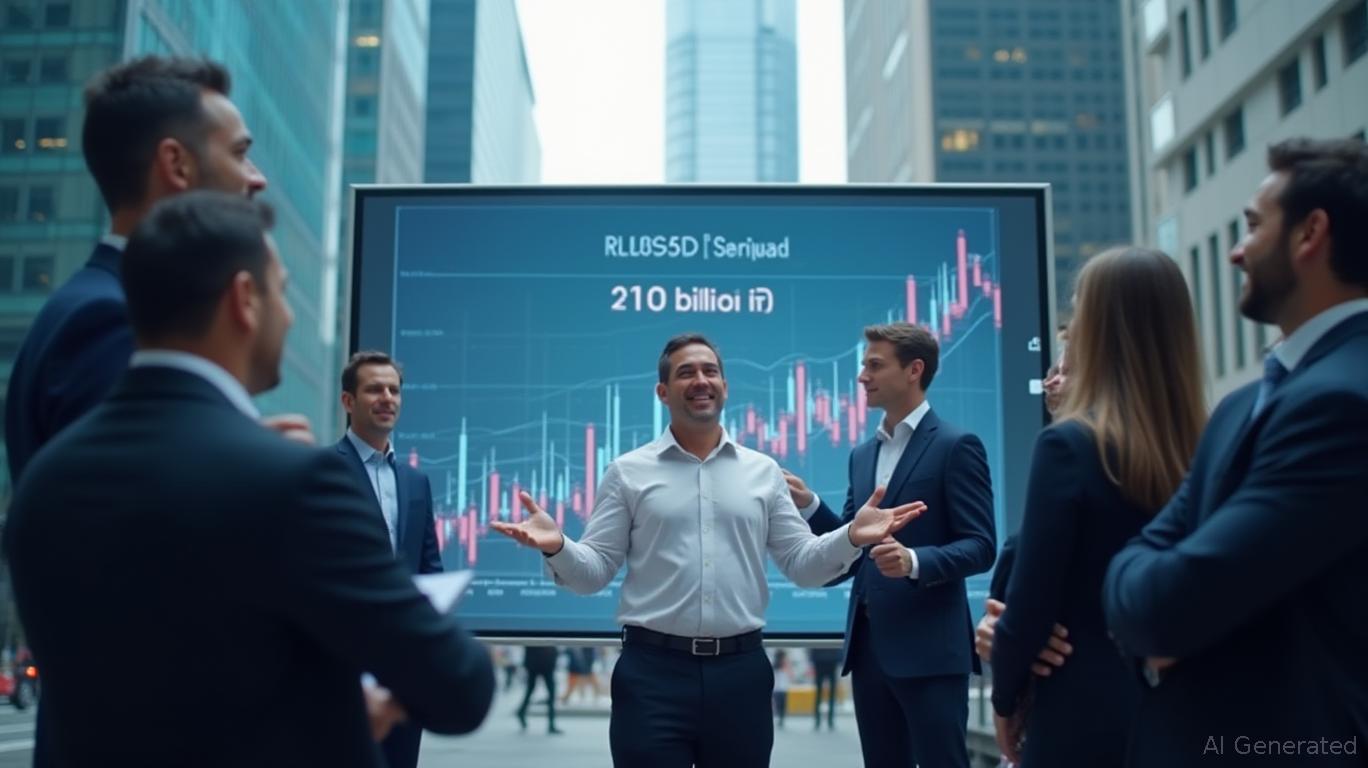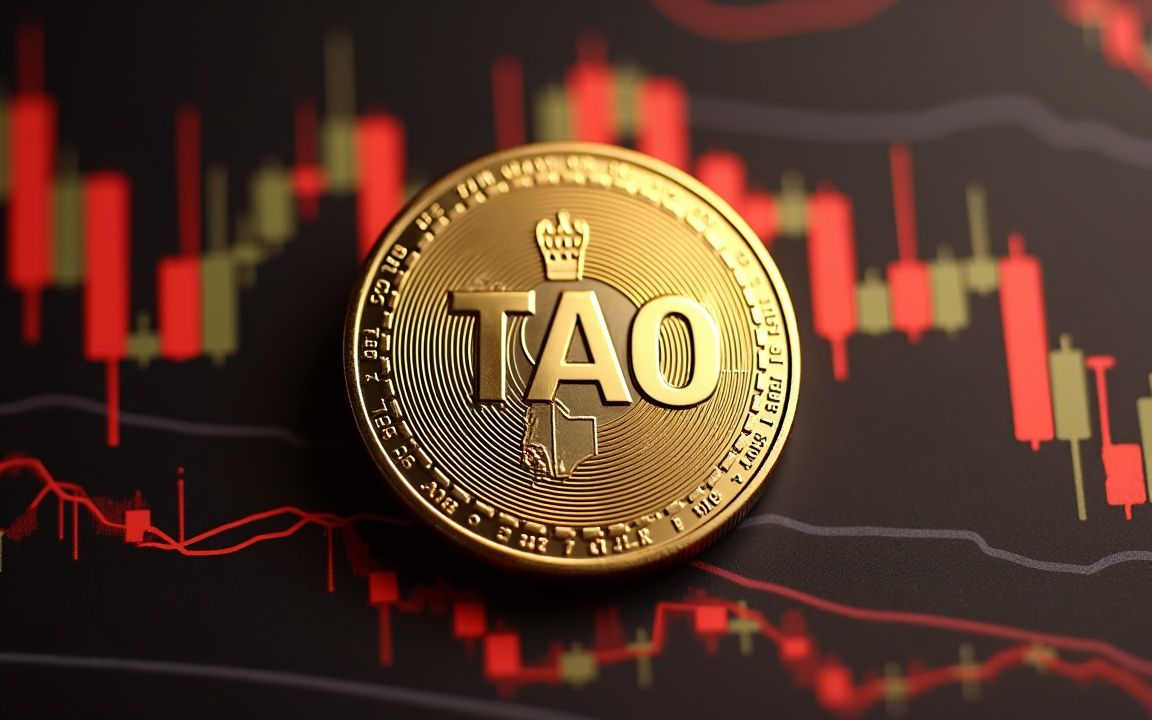XRP News Today: Ripple Establishes Wall Street Connection for Digital Assets as RLUSD Exceeds $1 Billion
- Ripple Labs launched Ripple Prime, a Wall Street-style OTC brokerage for institutional crypto trading, alongside RLUSD's $1B market cap milestone. - The platform enables cross-margining between XRP/RLUSD and traditional assets, addressing liquidity gaps via Ripple's custody and payments infrastructure. - XRP now serves as a core institutional asset for hedging and financing, bridging traditional portfolios with digital markets through compliance-focused infrastructure. - This hybrid model aims to reshape
Ripple Labs has strengthened its foothold in institutional finance by introducing Ripple Prime, an over-the-counter (OTC) brokerage service for U.S. institutions. This launch comes as its stablecoin RLUSD surpasses a $1 billion market capitalization, as reported by

Ripple Prime, which has been rebranded from the recently acquired multi-asset prime brokerage Hidden Road, delivers a "Wall Street-style" trading environment for institutional clients, supporting digital assets like XRP and RLUSD alongside conventional financial products, according to
The launch coincides with a significant achievement for RLUSD: the U.S. dollar-backed stablecoin has exceeded $1 billion in market value, signaling rising interest in compliant and efficient settlement options. RLUSD is fully backed by USD reserves and has become a preferred stablecoin for institutional transactions, with 50 million new tokens recently issued to satisfy demand. Ripple’s broader network, including the XRP Ledger, is designed to boost liquidity and streamline settlements, making RLUSD and XRP foundational to a blended financial ecosystem.
XRP’s function is also transforming. Once mainly used as a bridge for cross-border payments, XRP is now a key asset for institutional trading and financing through Ripple Prime, as outlined in
Ripple’s approach reflects a larger ambition to combine blockchain’s transparency with established financial systems. By bringing together OTC trading, custody, and payment services, Ripple aims to make digital asset markets as accessible and efficient as those in traditional finance. The acquisition of Hidden Road, completed in October, laid the technical and regulatory groundwork for Ripple Prime, which now operates under compliance standards comparable to those of leading Wall Street institutions.
This development has major implications for institutional finance. With Ripple Prime, organizations can now use XRP and RLUSD for hedging, managing liquidity, and diversifying portfolios, all while staying within U.S. regulatory guidelines. This could drive broader adoption of digital assets among asset managers, hedge funds, and corporate treasuries, especially as regulators and central banks pay closer attention to stablecoin operations.
Nonetheless, some obstacles persist. The long-term utility and value of XRP on the blockchain remain topics of debate, and RLUSD’s continued growth will rely on sustained institutional trust. Ripple’s focus on regulatory compliance and openness will be essential for maintaining credibility, particularly as global regulations continue to evolve.
At present, Ripple’s recent initiatives highlight a maturing crypto sector where institutional investors expect infrastructure that matches the sophistication and reliability of traditional finance. As RLUSD expands and Ripple Prime attracts more users, the boundaries between digital and conventional assets are becoming increasingly indistinct, shaping the next era of global finance.
Disclaimer: The content of this article solely reflects the author's opinion and does not represent the platform in any capacity. This article is not intended to serve as a reference for making investment decisions.
You may also like
Giggle Academy Clarifies Token Misconceptions, Confirms Focus on Education and Charity

Bittensor (TAO) plunges 16% amid broader crypto sell-off

Solana News Update: Solana ETFs Draw $90 Million Despite 20% Price Drop: The Inflow and Price Contradiction Intensifies
- Solana ETFs attracted $89.9M in inflows last week, outpacing Bitcoin and Ethereum as institutions shift capital to its high-speed blockchain. - Bitwise's BSOL ETF led with $417M inflows, surpassing BlackRock's Bitcoin ETF, while Grayscale added $4.9M to Solana's total. - Despite inflows, Solana's price fell 20% to $159, with bearish technical indicators like negative CMF and oversold RSI signaling sustained selling pressure. - Market divergence highlights institutional long-term confidence in Solana's 65

Hong Kong's Drive for Crypto Adoption Puts Pressure on U.S. Reluctance in Worldwide Competition
- Hong Kong relaxed crypto rules, enabling cross-border liquidity and attracting global platforms like Binance and Coinbase by 2026. - U.S. political debates intensified, with Trump criticizing Biden's delayed crypto policies and warning of China's growing digital-asset influence. - Regulators urged balanced frameworks, emphasizing innovation while safeguarding investors amid global competition for crypto leadership. - Hong Kong's reforms aim to bridge gaps with Singapore, while U.S. states like Wyoming pu
